Description
Name in North American Boletes: N/A
Genus: Amoenoboletus
- Genus 2: Boletus
Species: weberi
Common Name:
Tells: Brownish cap dry, scaly & oft-cracked. Pale yellow flesh DNS & tastes “tart and somewhat lemony.” Reddish, oft-scaly stem. Reddish pores.
Other Information: Cap may have red tints to the normal olive/brown, & is usually cracked. Pores age from red toward orange, and may slowly turn brown when bruised. Stem broadens going down, pinching in by the ground. Stem red-over-yellow high, brown-over yellow going down. Likes pine, often with oak in the area.
Science Notes: Originally thought to be a Gulf Coast mushroom, DNA-confirmed specimens have been found in the New Jersey Pine Barrens. Transferred to the newly raised genus Amoenoboletus in 2021.
Edibility: Unknown.
CHEMICAL TESTS:
- NH4OH (Ammonia): Cap skin turns reddish brown. Cap flesh quickly turns greenish blue.
- KOH: No data.
- FeSO4 (Iron Salts): No reaction.
Links:
 |
0 |  |
0 |  |
0 |  |
171 |


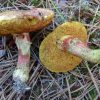
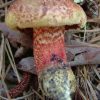
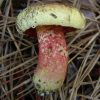
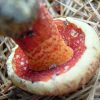
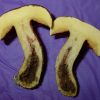
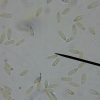
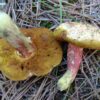
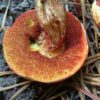
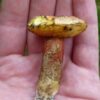
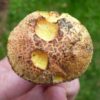
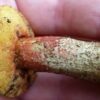
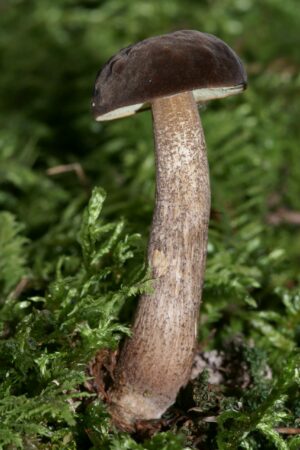

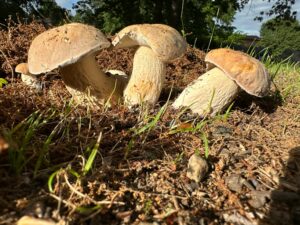
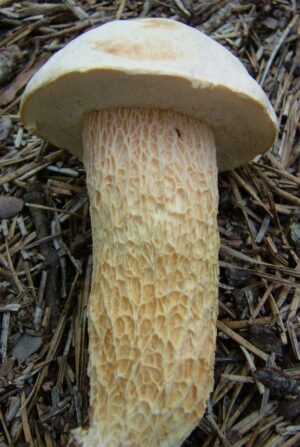
Got something to discuss?